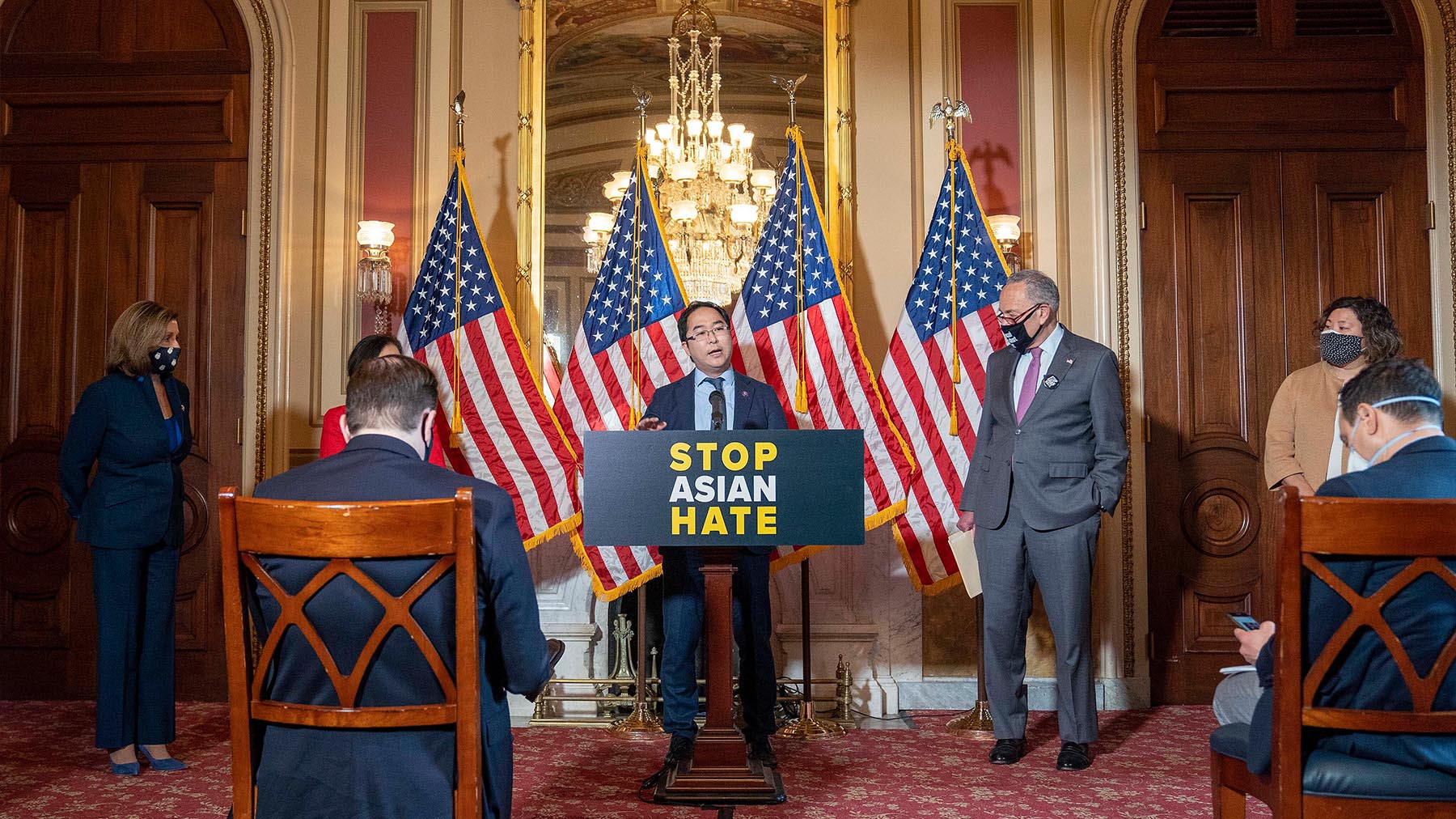May 20 marked the third anniversary of the enactment of the COVID-19 Hate Crimes Act, one of the most significant pieces of legislation designed to improve federal hate crime reporting.
I still vividly remember the tragic events leading to the signing of this major legislation by President Joe Biden. At the onset of the pandemic, we witnessed then-President Donald Trump fueling anti-Asian hate across the country with his rhetoric. We saw stories of people of Asian descent across the U.S. facing harassment, assault, discrimination and bullying. And it culminated in the murder of eight people, six of whom were women of Asian descent, in Atlanta in 2021 – a deadly tragedy that spotlighted the deep-seated anti-Asian racism and misogyny plaguing this country.
When I reflect on that time, I’m reminded of the fear and anxiety that many members of my community felt. Messages in my family group chat shared links to news stories of elderly people of Asian descent getting physically attacked while just trying to live their lives. Other messages urged folks to stay home and not to go out alone. While anti-Asian bias, stereotyping and hate existed long before the COVID-19 pandemic, it was one of the first times many of us saw these feelings manifest so violently and with such blatant disregard.
Asian American and Pacific Islander (AAPI) Heritage Month provides an opportunity to celebrate and reflect on the progress this country has made toward a more diverse and equitable union. We are seeing more AAPI representation in media and AAPI communities becoming a growing political voting bloc. But, as a country, we still have a long way to go. AAPI people only make up about 0.9% of elected leaders across all levels of government, but 6.1% of the population.
While I am relieved that the incidents of anti-Asian harassment and violence no longer occur with the frequency and severity needed to make national headlines, I am frustrated by casual anti-Asian racism that still occurs. For example, the paparazzi’s recent disrespect and racially charged comments toward Korean pop group Stray Kids at this year’s Met Gala.
However, I am hopeful that this country is working toward rooting out systemic barriers, discrimination and hate. There are clear improvements in reporting, preventing and addressing hate crimes, thanks to the COVID-19 Hate Crimes Act, which requires law enforcement agencies to demonstrate a good faith effort to improve hate crime data collection and training to receive U.S. Department of Justice funding.
More could be done to eradicate anti-AAPI hate and bias including increasing funding and stronger requirements to improve detailed data collection and hate crime prevention, promoting the teaching of AAPI history and supporting diversity, equity and inclusion efforts in all sectors.
Preventing hate and bias also means educating our students about the honest, inclusive history of our nation and encouraging more interactions with peers from diverse backgrounds and cultures.
We must take these steps to continue the fight against anti-AAPI hate.
Theresa Lau is the senior policy counsel for eradicating poverty at the Southern Poverty Law Center and SPLC Action Fund.
Photo at top: U.S. Rep. Andy Kim speaks during a press conference on the COVID-19 Hate Crimes Act at the U.S. Capitol on April 13, 2021. (Credit: U.S. Senate Democrats)



